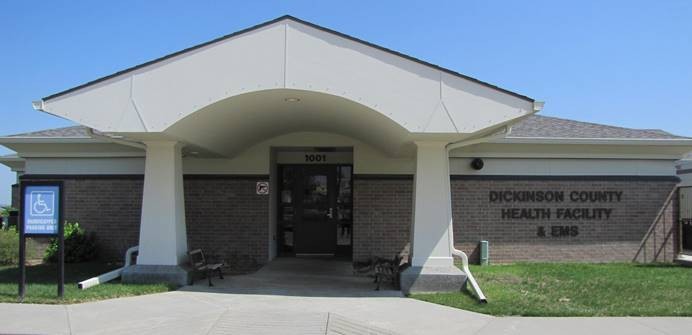Rabies
Rabies Exposure assessment:
https://www.kdhe.ks.gov/2026/Rabies-Exposure-Assessment
Remember the Importance of Animal Vaccination!
Kansas Department of Health and Environment
KDHE PH: 785-296-2501
KDHE offers these tips to prevent rabies:
- Have your veterinarian vaccinate all dogs, cats, ferrets, horses and valuable breeding stock and show animals (cattle and sheep) against rabies.
- If bitten by an animal, seek medical attention and report the bite to your local public health department or animal control department immediately.
- If your animal is bitten, contact your veterinarian or local health department for advice.
- If you wake up in a room with a bat present, even if there is no evidence of a bite or scratch, seek medical attention.
- Do not handle or feed wild animals. Never adopt wild animals or bring them into your home.
- Do not try to nurse sick wild animals back to health. Call animal control or an animal rescue agency for assistance.
- Teach children never to handle unfamiliar animals, wild or domestic, even if they appear friendly.
For more information about rabies, contact your veterinarian, local health department or the Kansas Department of Health and Environment at 877-427-7317.
KDHE's mission is to protect and improve the health and environment of all Kansans. Through education, direct services and the assessment of data and trends, coupled with policy development and enforcement, KDHE will improve health and quality of life. We prevent illness, and injuries and foster a safe and sustainable environment for the people of Kansas.
Rabies Exposure assessment:
https://www.kdhe.ks.gov/2026/Rabies-Exposure-Assessment
Remember the Importance of Animal Vaccination!
Kansas Department of Health and Environment
KDHE PH: 785-296-2501
KDHE offers these tips to prevent rabies:
- Have your veterinarian vaccinate all dogs, cats, ferrets, horses and valuable breeding stock and show animals (cattle and sheep) against rabies.
- If bitten by an animal, seek medical attention and report the bite to your local public health department or animal control department immediately.
- If your animal is bitten, contact your veterinarian or local health department for advice.
- If you wake up in a room with a bat present, even if there is no evidence of a bite or scratch, seek medical attention.
- Do not handle or feed wild animals. Never adopt wild animals or bring them into your home.
- Do not try to nurse sick wild animals back to health. Call animal control or an animal rescue agency for assistance.
- Teach children never to handle unfamiliar animals, wild or domestic, even if they appear friendly.
For more information about rabies, contact your veterinarian, local health department or the Kansas Department of Health and Environment at 877-427-7317.
KDHE's mission is to protect and improve the health and environment of all Kansans. Through education, direct services and the assessment of data and trends, coupled with policy development and enforcement, KDHE will improve health and quality of life. We prevent illness, and injuries and foster a safe and sustainable environment for the people of Kansas.
